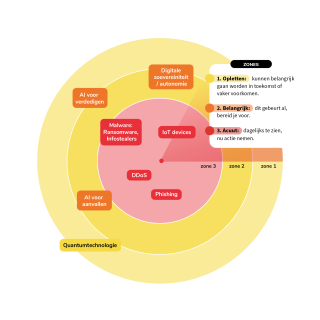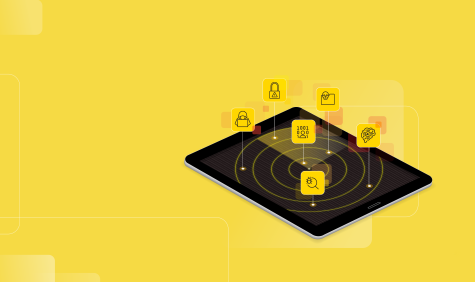Cyber Threat Assessment 2025
DDoS attacks, malware and phishing remain the greatest dangers
Cyber threats and trends on the radar
The Cyber Threat Assessment 2025 focuses on the main threats of the past year. It also highlights several key areas of attention, such as quantum technology and digital sovereignty. These threats and developments are ‘plotted’ on a cyber radar, making the level of urgency and the need for action clearly visible.

Overview of the main cyber trends and threats of 2025.
Threats increasingly interconnected
The publication further shows that cyber threats are becoming more interconnected and therefore more complex. The Cyber Threat Assessment 2025 visualises these interrelations and provides an overview of measures that can help increase your institution’s cyber resilience.
SURF cybersecurity dashboard: up-to-date overview of threats and trends
Would you like to learn more about these and other threats affecting education and research? Then visit SURF's cybersecurity dashboard. There you will find - throughout the year - up-to-date information on how attackers operate and how to protect your institution against them. So, as an institution, you no longer have to wait for this cyber threat assessment to be published once a year. The dashboard is accessible to members of the SURF Community for Information Security and Privacy (SCIPR).
The original article was posted on the website of the Security Expertise Centrum.
